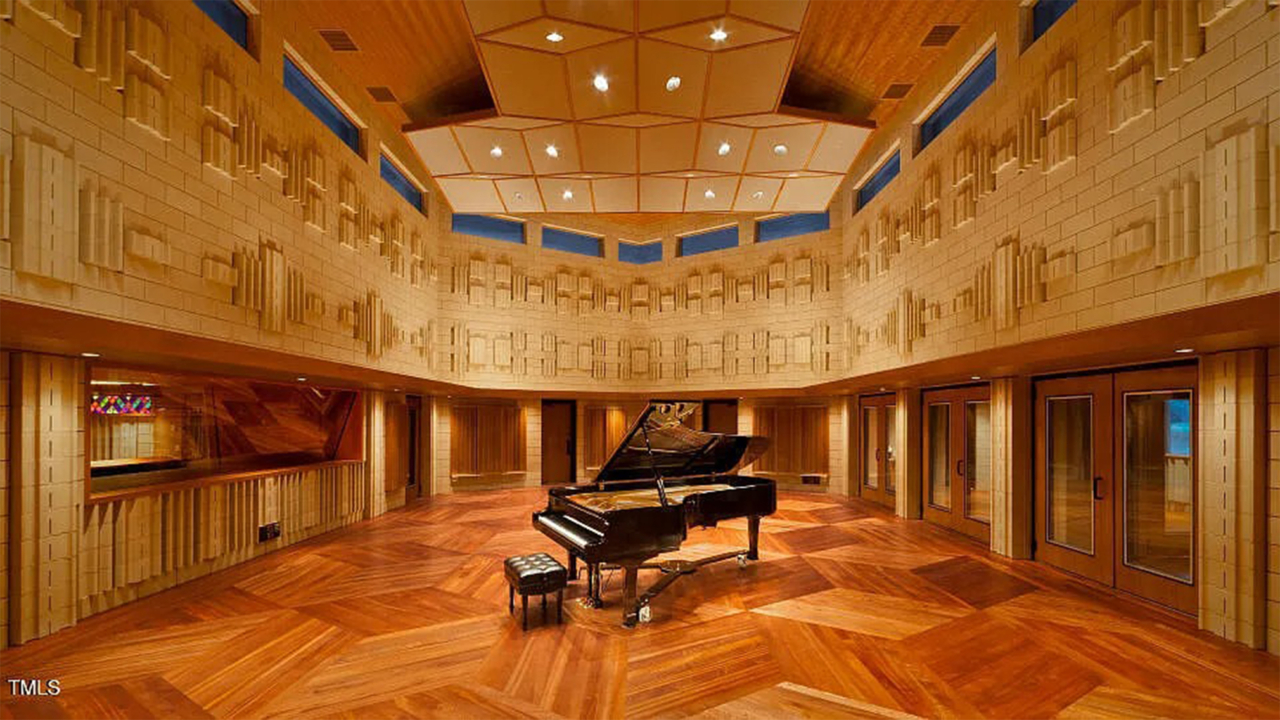Should I Buy A Condo or a House?
Learn the pros and cons of owning a condo or detached single-family home to help you broaden — or focus —your home search.
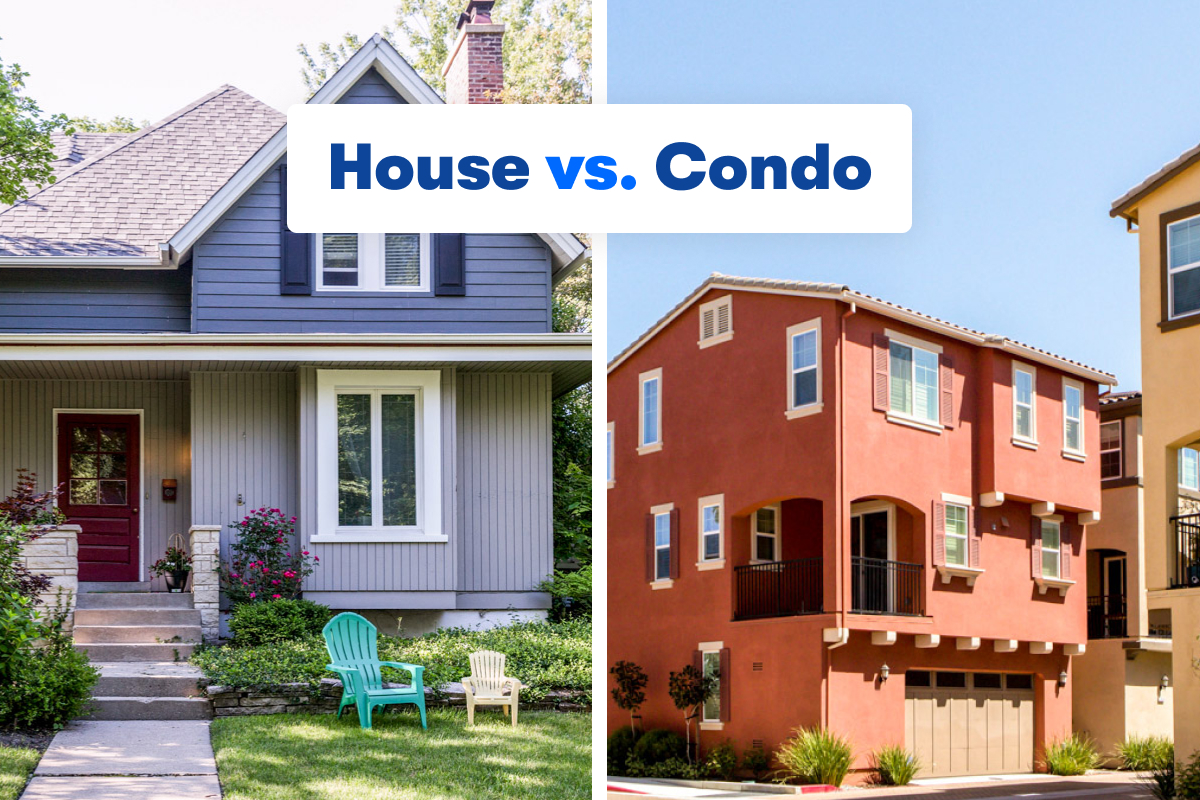

Written by Susan Kelleher on February 24, 2022
In today’s hot housing market, home shoppers stand a greater chance of landing a home if they consider all available homes for sale instead of focusing on a single type.
Most people who buy a home purchase a detached single family house, but in 2025, 5% of buyers purchased a condo, according to the Zillow Consumer Housing Trends Report 2025. An analysis of Zillow data from September 2025 also shows that, in all but two of the nation's 50 major metros, condos are the most affordable option for first-time buyers looking for a "starter home."
Knowing some of the pros and cons of buying a condo versus a single family home can help you decide what home might better suit you.
What is a condo?
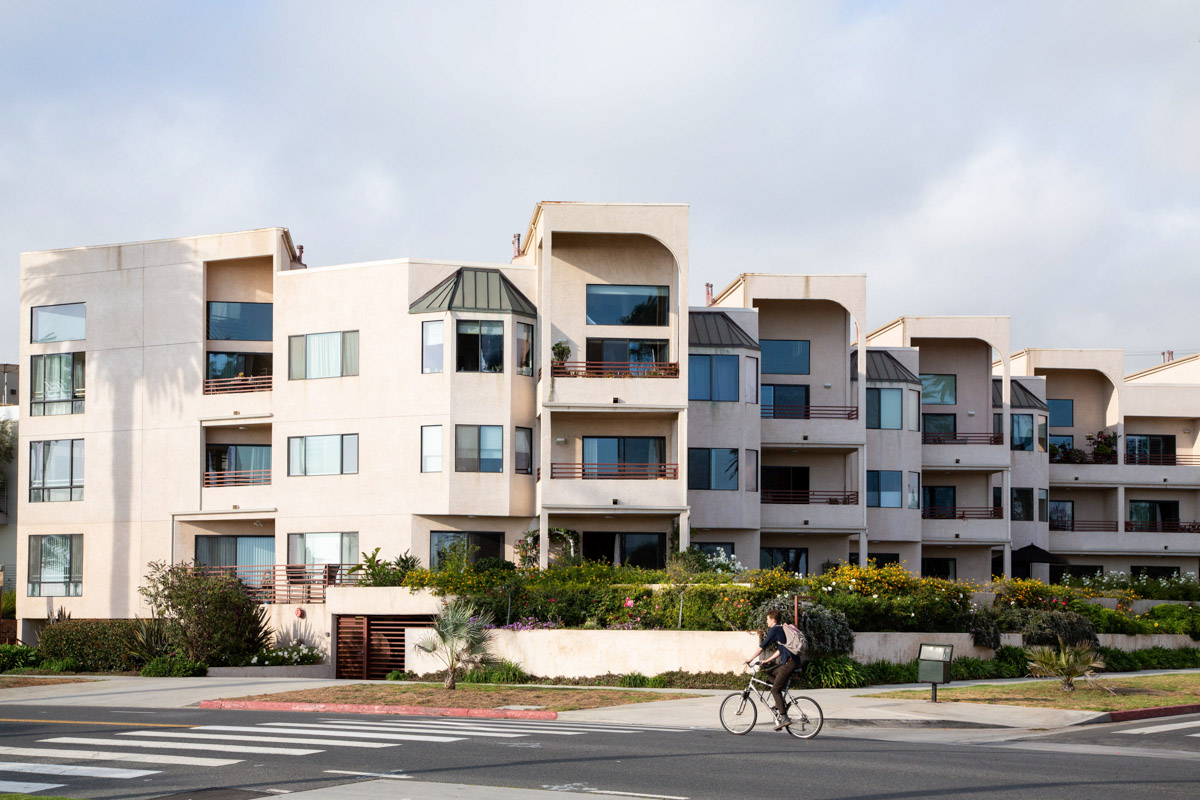
A condo is basically an owner-occupied apartment. With a condo, you own the space inside your unit and share ownership of common areas with the other condo owners.
The common areas are usually managed by a homeowners association (HOA) that charges owners a fee to maintain shared spaces and amenities such as pools, spas, and landscaping.
What is a detached single-family home?
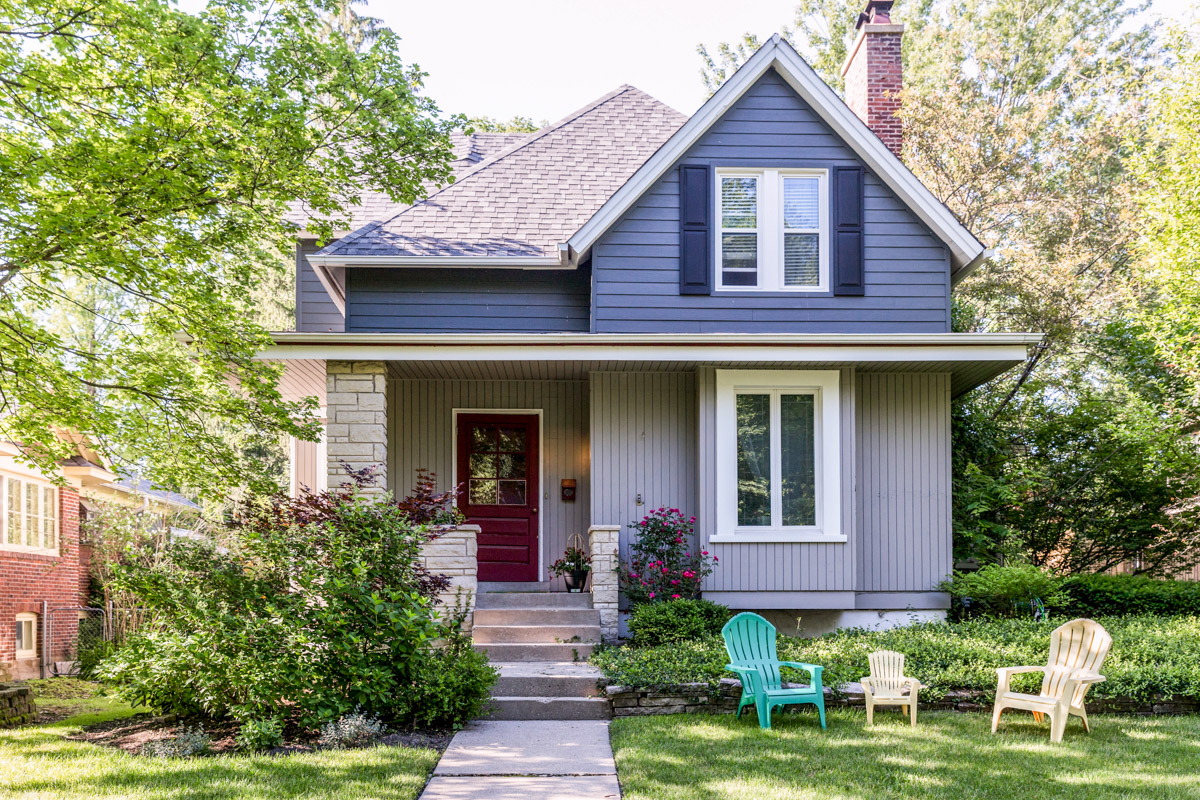
A single-family home is a stand-alone, detached home that usually houses one family, person or household. It has its own private entrance, direct street access, sits on its own land and usually comes with additional yard space. The owner bears sole responsibility for maintenance — inside and out.
According to Zillow data, the size of a typical single-family home in 2025 is 1,736 square feet, with three bedrooms and two baths.
Weigh the pros and cons of each option
Finding a home that feels right, and fits your finances, your lifestyle and your future plans could take some time. Considering all homes on the market could make your search easier.
Here are some things to take into account when shopping.
Condo pros
Usually cost less than a single family home
Condos have historically been a more affordable option than detached single family homes. According to Zillow's Home Value Index, a typical condo in the U.S. was worth $345,216 in September 2025. That same month, a typical U.S. single family home sold for $365,751 — $20,525 more. In some metros the difference is much greater.
For that reason, condos are often considered a “starter home,” a way to buy into the market to help stabilize your housing costs and start building equity if the home appreciates.
Shared responsibility for maintenance
If your idea of a good time does not involve cutting grass, weeding, power washing siding and fixing broken things on the outside of your home, condos have you covered. Maintenance is a shared financial responsibility, one that is usually hired out. That saves you not only from doing the work, but from having to track down qualified tradespeople so you can enjoy more of your free time.
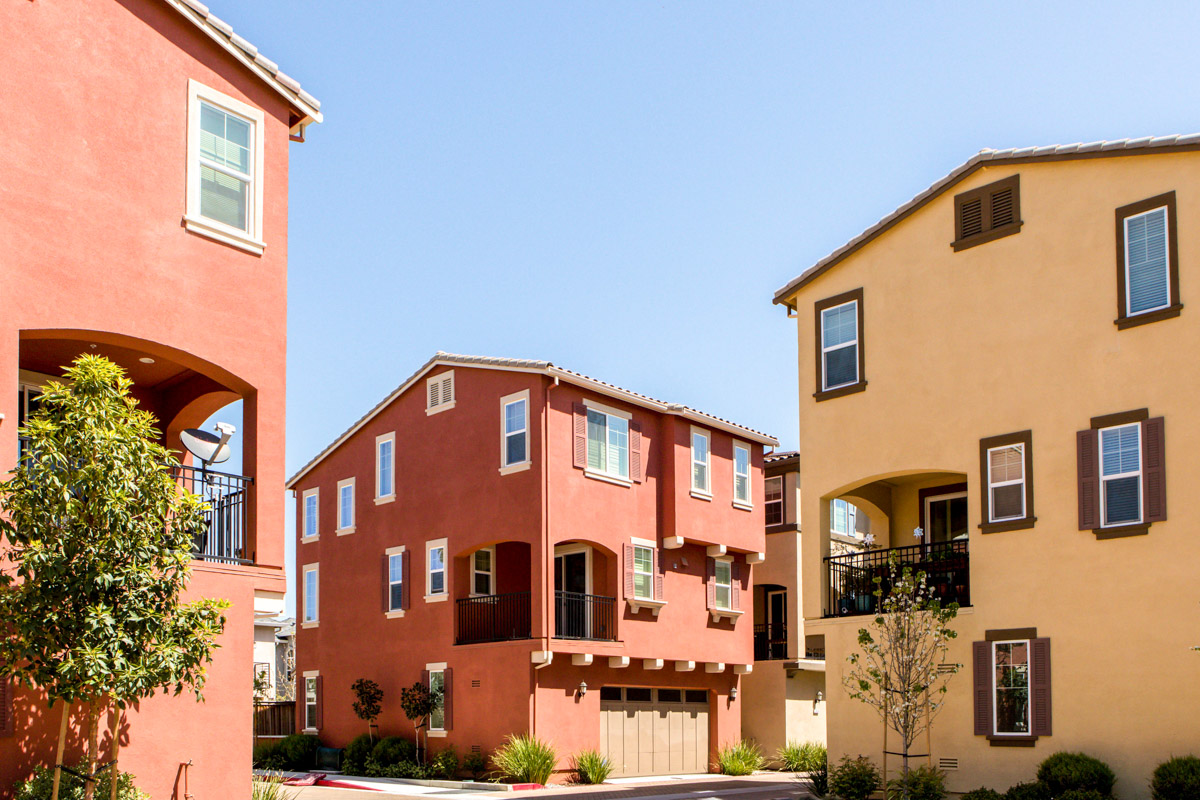
Access to amenities you might not be able to afford alone
Do you dream of having access to a gym, tennis court or pool at home? What about covered parking or a play area for the kids? Some complexes have them. The amenities are priced into HOA fees so the cost is spread out among all of the owners. That can allow you to indulge in some luxuries you might not be able to afford if you had to pay for them yourself.
Insurance costs could be lower
The HOA should have an insurance policy that covers damage to the structure, which means that you might only have to insure your possessions. Your policy should cover any gaps in the HOA’s coverage, so become familiar with what is and isn’t covered by the HOA’s policy before you shop for a policy.
Potential for more interaction with neighbors
Shared spaces and amenities, not to mention elevators and common stairwells, can provide lots of opportunities to meet and mingle with neighbors. If you’re a sociable type, a condo could be your happy place. Of course, proximity doesn’t guarantee instant community, but the makings for easy human connection are there if you’re open to them.
Accessibility
Elevators are common at many condo buildings, allowing for stair-free living.
Rules and regulations
HOAs are controlled by an elected board of directors, which can set rules on everything from the type of pets allowed, home businesses, including short- and long-term rentals, and access to common areas. If you prefer to have more predictability in your life, more rules could be just your ticket.
Single family home pros
Build equity faster
Single family homes have traditionally appreciated at a faster rate than condos. A Zillow analysis of home data showed that single family home values rose 0.2% from September 2024 to September 2025. Over the same period, condos values declined 1.5%.
Given a higher valuation to start with, the higher rate of appreciation for single family homes means that you’re more likely to build more equity more quickly.
More control over your environment
Most single-family homes are not governed by HOAs, which means you’re free to paint the exterior whatever color you want, garden to your liking, and control your space in any legal way that makes you happy.
Some single-family homes are located in developments that are governed by HOAs. If that’s the case, you will be subject to the rules and regulations adopted by the board or put in place by the developer.
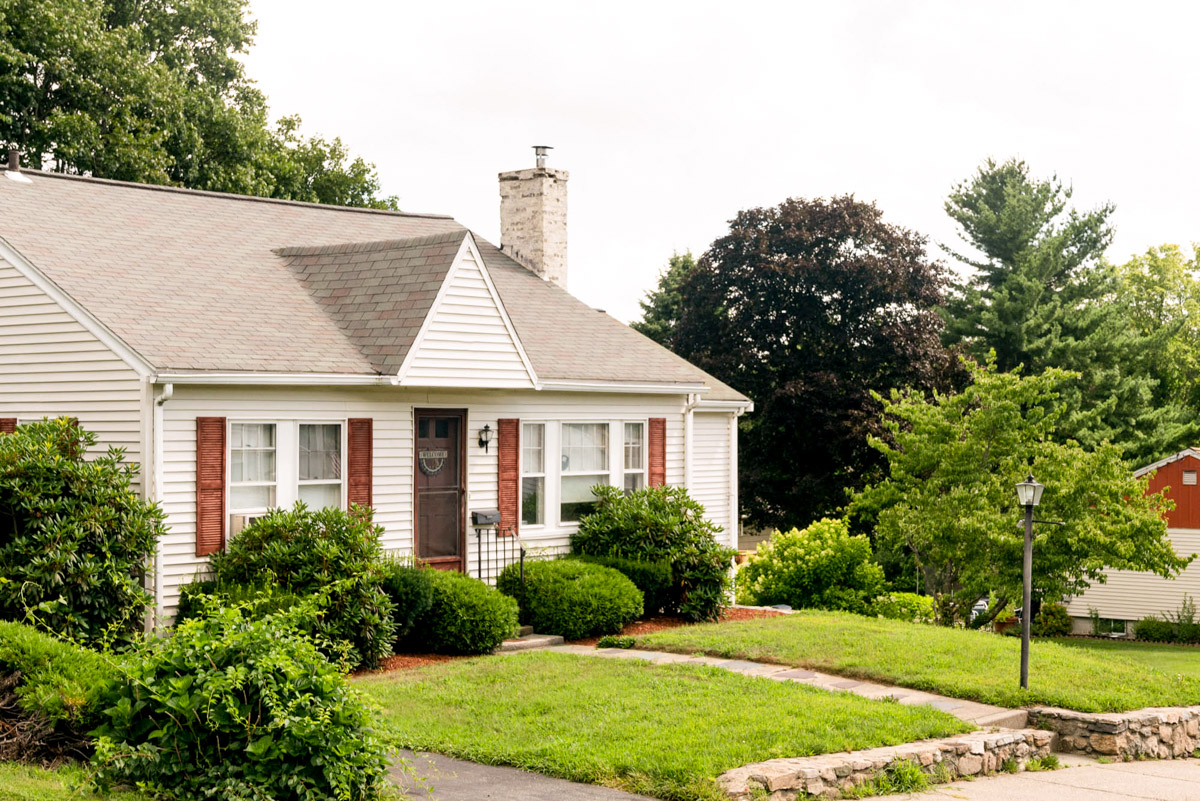
You can add space
Single-family homes can give you more flexibility to renovate as your needs evolve. You can add a second floor, an ADU, build a spare room or office, or remodel a basement or garage for a playroom or home gym. Some single-family homes are governed by HOAs that might restrict what you can build, but there is still more opportunity to add space.
Rental potential
HOA rules for condos and homes governed by HOAs can prevent you from renting your home.
If your home is free from HOA rules, you can rent it any time you want, subject to any local government restrictions.
Privacy
If your idea of the perfect neighbor is one who quickly waves from afar, you might appreciate the personal space and quiet that a single family home is likely to give you from neighbors.
And while condos may come with private balconies or patios, a single family home is more likely to have personal yard space. You’ll also be free of noise from people living above or next to you, assuming that the homes have sufficient space between them.
More homes to choose from
There are far more single-family homes for sale than condos. According to Zillow housing data, there were about 1.36 million homes listed for sale in the U.S. in September 2025. Single-family homes accounted for 1.17 million of those homes -- or about 86% of all homes for sale.
Condo cons
Weak rule enforcement
A dysfunctional HOA board or weak enforcement of rules and regulations can lead to neglected maintenance and even legal liability for the community.
Also, some rules may be at odds with your long-term financial goals. For instance, if you’re planning to move in a few years and hang onto your condo as a rental, you could blocked from doing so if renting isn’t allowed. Conversely, if rentals are allowed, you could find yourself next to a party house for short-term rentals or a rotating cast of neighbors.
Hefty HOA fees
Depending on the condo building or complex, HOA fees could add hundreds of dollars to your monthly housing costs. Some HOAs include such things as water and trash disposal in their monthly fees — costs you would have to pay as well in a single-family home. But a large share of HOA dues also could be used to maintain amenities. If you’re not using the amenities, you could feel like you’re wasting money.
Delayed maintenance
Because maintenance is a shared responsibility, you will be relying on the board to stay on top of things. A fiscally responsible board will spend money on maintenance, but a neglectful board could cost everyone a lot of money if they let problems such as water intrusion or pavement upkeep go unaddressed.
Financing — and refinancing — could be harder
A poorly managed HOA could make it harder for you to refinance or for a future buyer to obtain financing to purchase your unit when you list it for sale.
Financing a condo typically follows much the same process as financing a single-family home, with a few key differences: lenders are likely to require additional checks designed to gauge the health of the HOA, any pending litigation against the HOA, insurance coverage, liens and more.
Some institutional lenders may have additional lending requirements that will prevent a refinance if certain conditions are present, including contractual arrangements the condo may have with third-party businesses.
Letters of recommendation are required before buying
The condo association’s board of directors and even the lender may require references or letters of recommendation from previous landlords.
Single-family home cons
Sole responsibility for maintenance
You alone will shoulder all the costs of maintaining the home. Big ticket items like roof replacement, sewer issues and exterior painting can blow a big hole in your budget if you’re not prepared for them.
Accessibility
Stairs, basement laundry rooms, awkward layouts in older homes and narrow doorways, all can make mobility difficult or impossible.
More expensive to buy
Paying more for your home could mean that you’ll have less to spend on other things such as vacations, autos or entertainment.
Your freedom is also your neighbors’
Don’t assume everyone shares your aesthetic sense. Your neighbors might share your enthusiasm for a neatly clipped lawn, or they might prefer dandelions and overgrown wisteria. Unless you have an HOA, you and your neighbors are going to have to find a way to deal with each others’ choices and lifestyles.
How to buy a home
Think you’re ready to buy a home? Be sure to talk with your agent about your home buying needs, so that they can help guide you to a home that’s a good fit.
- Get pre-approved for a mortgage
- Compare mortgage rates from at least three different lenders
- Search for available starter homes
- Make an offer
- Schedule an inspection of the property
- Apply for a home loan
- Check that the home appraisal matches or comes above your offer price
- Purchase a homeowners insurance policy
- Close on the home
Check out our Home Buyers Guide for more or read our tips on how to Level Up Your Zillow Home Search.
A local agent can help you stay competitive on a budget.
They’ll help you get an edge without stretching your finances.
Talk with a local agent

